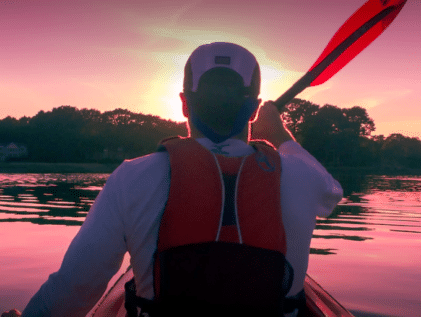We’ve talked a lot on these pages about the challenges of dementia, particularly in terms of engaging those who suffer from its symptoms. We thought we’d dig into that topic a little deeper over the next few weeks – specifically, the approach we’ve chosen in our LCB communities and the philosophy behind it. Developed in collaboration with Harvard Medical School and Brigham & Women’s Hospital, our Four Pillars of Engagement programming is a non-pharmacological methodology meant to focus on the whole person, not the disease, through Physical, Social, Cognitive, and Emotional channels. This week, we’ll start with the physical aspect, and how it’s being put to use at our Lighthouse of Lincoln community in Lincoln, Rhode Island.
“Our resident population is quite diverse in age, profession, and cultures,” says Lighthouse Resident Engagement Director Jody DiRamo. “We have retired military officers, nurses, atomic engineers, school teachers, homemakers and farmers.” Part of what unites them all, she says, is compassion and relationship building –and much of that takes place through the wellness programming that falls under this “Physical” Pillar of Engagement. Exercise is known to release endorphins that make people feel happy and strong; Jody sees the residents that exercise together as sharing a sense of accomplishment and purpose, and feeling more engaged as a team each day.
Physical activity also increases neural activity, and strengthens concentration and focus. So in the morning Stretchacize class at Lincoln you might see residents counting their weightlifts in Italian, German, French, or Portuguese. “Seniors who have never spoken these languages are counting to 20 within a few weeks,” Jody points out. Their morning Tai Chi classes are set to music that has sound frequency patterns designed to stimulate memory and other brain functions, easing into an isometric strengthening program designed around different musical beats and genres.
Jody’s team rounds out Lincoln’s physical programming with several club sports offered throughout the week. Residents enjoy bocce, bowling, golf billiards, Frisbee hoop, Ladder Toss, and other pursuits that stimulate cognitive function, improve hand-eye coordination, and as Jody points out, “are meant to be just plain fun.” Depression, disconnection and agitation are well-known components of dementia; these kinds of hands-on experiences are meant to stave off those feelings and steer seniors towards feeling connected, present, and proud of what they’re accomplishing. “We encourage our residents to participate and flourish through the journey of dementia to their best ability,” Jody states. “We strive to be the bridge that provides the path with compassion, friendship and trust.”
If you’d like to read more about exercise and dementia, check out this helpful fact sheet from the Alzheimer’s Association.

